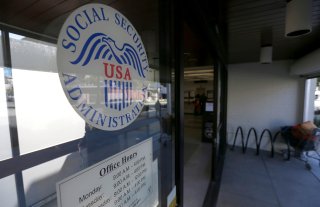Is There Really a Best Time to Collect Social Security?
The financial benefits of delaying collection are difficult to ignore.
There’s surely no one-size-fits-all answer, but when it comes to claiming Social Security checks, financial experts and planners often tout the benefits of waiting as long as possible.
If one closely analyzes the numbers, it’s rather easy to see why. For retirees who need to start collecting Social Security at age sixty-two, the maximum amount of monthly benefits they can receive is $2,364. But if one has the financial resources to wait until age seventy to file, they would be eligible for the absolute maximum amount, which currently comes in at an impressive $4,194.
“Workers planning for their retirement should be aware that retirement benefits depend on age at retirement,” writes the Social Security Administration (SSA).
“If a worker begins receiving benefits before his/her normal (or full) retirement age, the worker will receive a reduced benefit. A worker can choose to retire as early as age 62, but doing so may result in a reduction of as much as 30 percent. Starting to receive benefits after the normal retirement age may result in larger benefits. With delayed retirement credits, a person can receive his or her largest benefit by retiring at age 70,” the agency continues.
Varying Situations
But personal finance writer James F. Royal at Bankrate.com is more on the fence regarding when exactly is the best time to file for benefits. “It’s a hard question to answer, in part because everyone’s situation can be drastically different, but also because of the serious downsides of outliving your income,” he writes.
“Clearly, if you plan to live a long time—few people plan otherwise—waiting to file is the better option, all else equal. The rub is whether a person lives long enough to collect that extra,” he adds.
Waiting Can Pay Off
However, Royal added that the financial benefits of delaying collection are difficult to ignore.
“You’ll receive your full benefit if you claim it at full retirement age (age 67 for those born in 1960 or later). And you’ll receive extra benefits if you don’t claim your check until age 70. After that, though, you won’t receive any bonus payout, so there’s no reason to wait past 70,” he writes.
“If you claim your benefits early, then you’ll lose five-ninths of 1 percent of your benefit each month for up to 36 months before normal retirement age. If you file more than 36 months early, you’ll lose another five-twelfths of 1 percent a month,” he continues.
However, despite the heftier checks just for waiting, Royal notes that in 2020, only 5.9 percent of men and 7.5 percent of women filed for benefits at age seventy or later.
Ethen Kim Lieser is a Washington state-based Science and Tech Editor who has held posts at Google, The Korea Herald, Lincoln Journal Star, AsianWeek, and Arirang TV. Follow or contact him on LinkedIn.
Image: Reuters.

